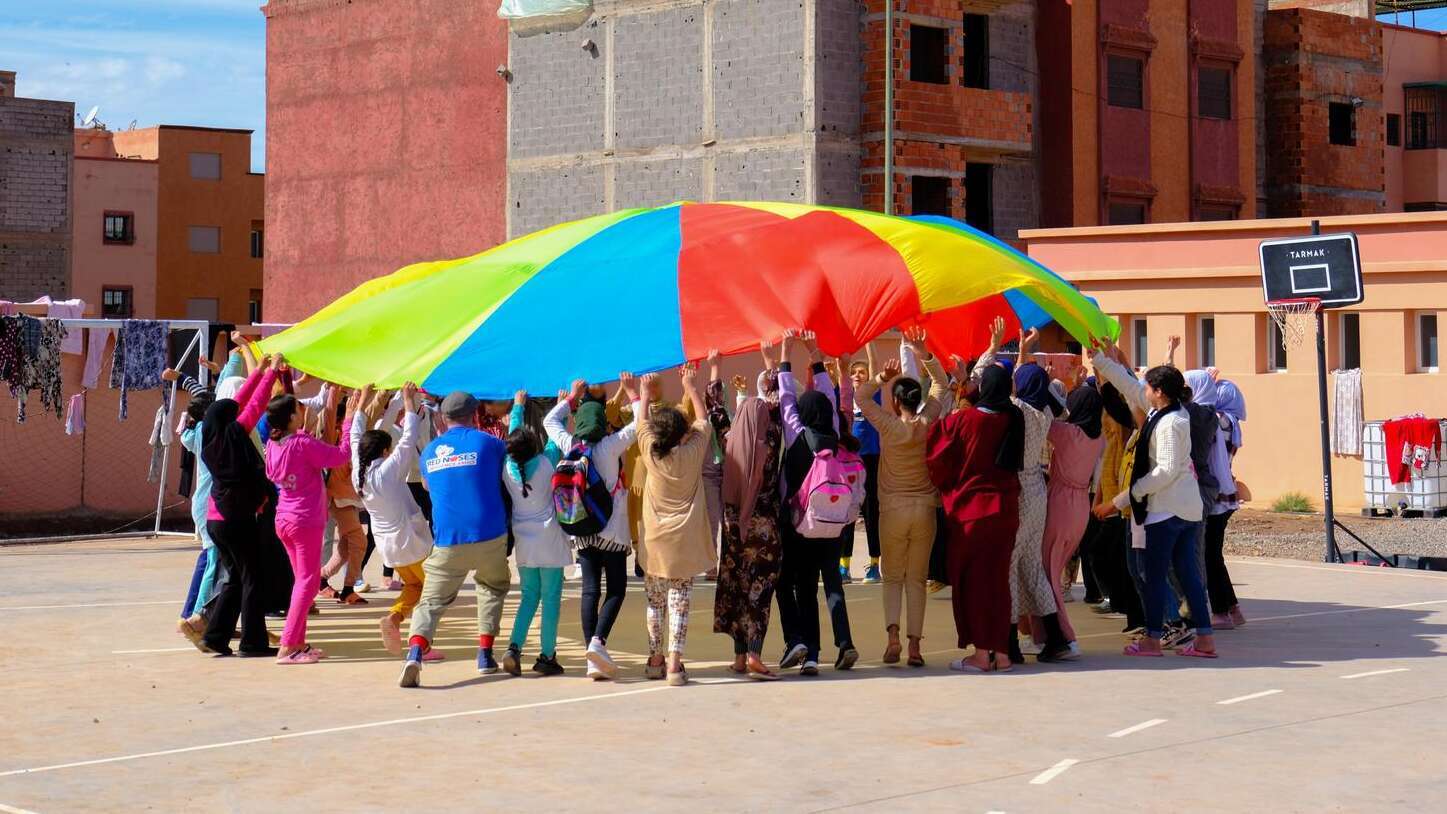Emergency Smile formats
Our Emergency Smile team develops missions in which a group of international and specially trained clown artists, along with a Head of Mission, travel to crisis settings around the globe to provide support. This support comes in the following formats:
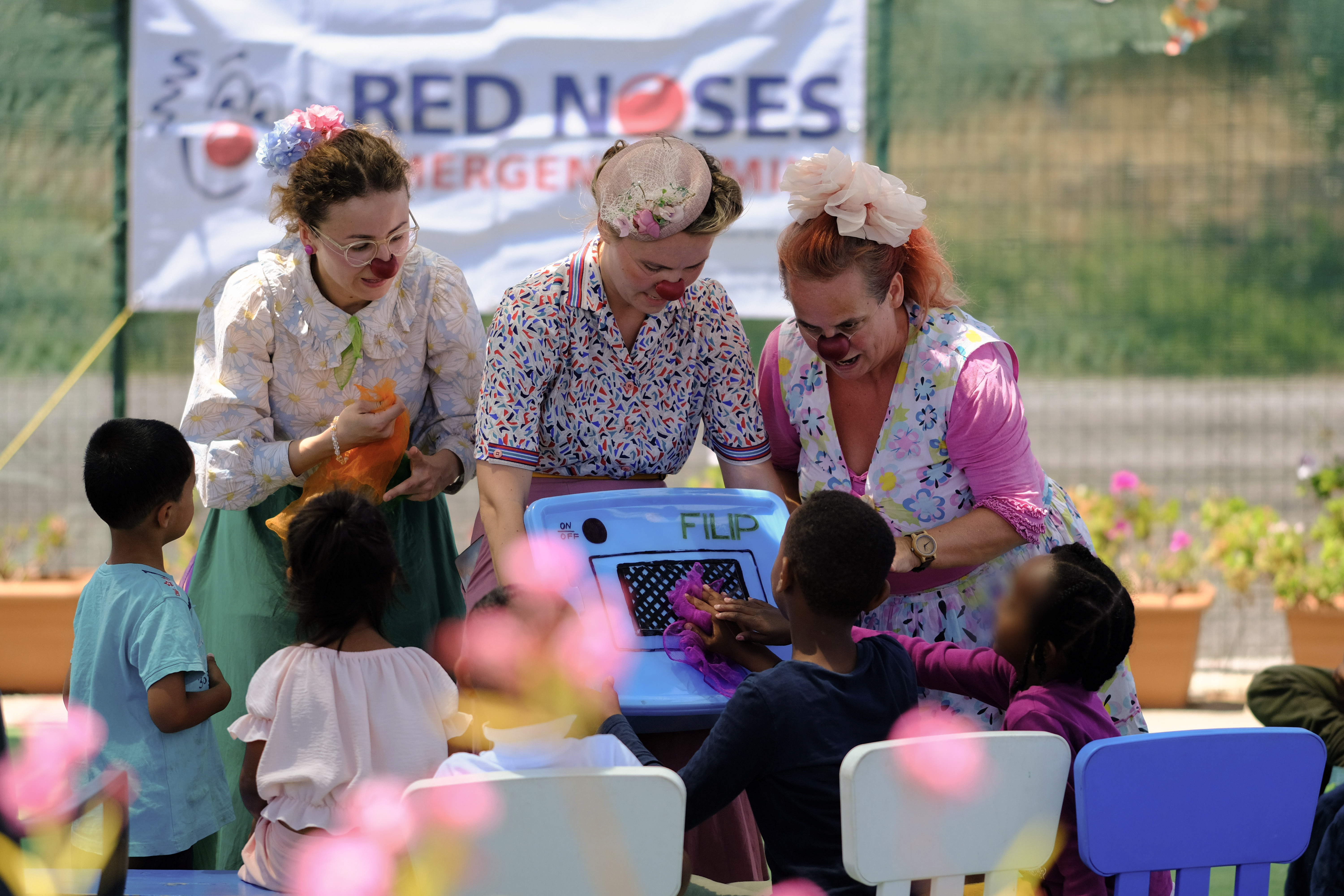
Clown shows
Each clown show, performed by a group of clowns on an Emergency Smile mission, is adapted according to the circumstances of the mission but is always designed to provide joy, normalise failure, and connect with emotions.
Because every mission is unique, Emergency Smile clown shows are adapted for the specific needs of the group that they will encounter. The uniqueness of the shows also comes from the different characters of the clowns and the relationships they create throughout the mission.
Clown shows create space for joy and laughter, demonstrating that there are no failures or challenges that cannot be overcome, and help audiences to reconnect with their emotions and each other.
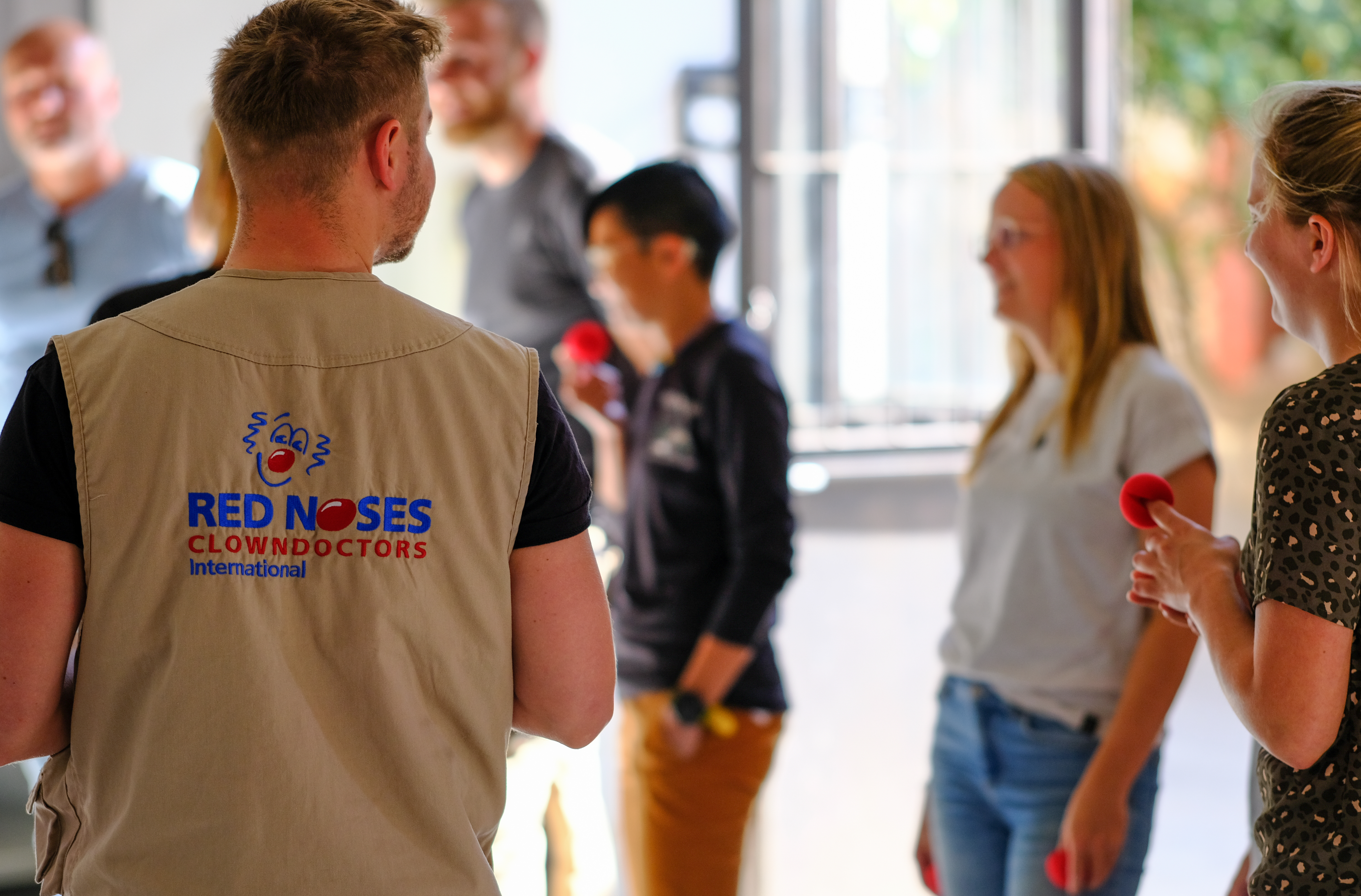
Humour relief workshops
A workshop for aid workers, medical staff, and volunteers working in crisis settings. These workshops aim to improve emotional well-being, teamwork, and to teach skills on the best ways to utilise humour.
Participants are provided with knowledge on how humour can create powerful emotional connections between people, enhance and stimulate social interactions, and reduce stress and anxiety, thus fostering a better professional environment. The workshop also focuses on using humour as a tool to improve working relationships.
By the end of each workshop, the participants should have learned new coping strategies for stress and feel energised and more connected to their fellow team members.
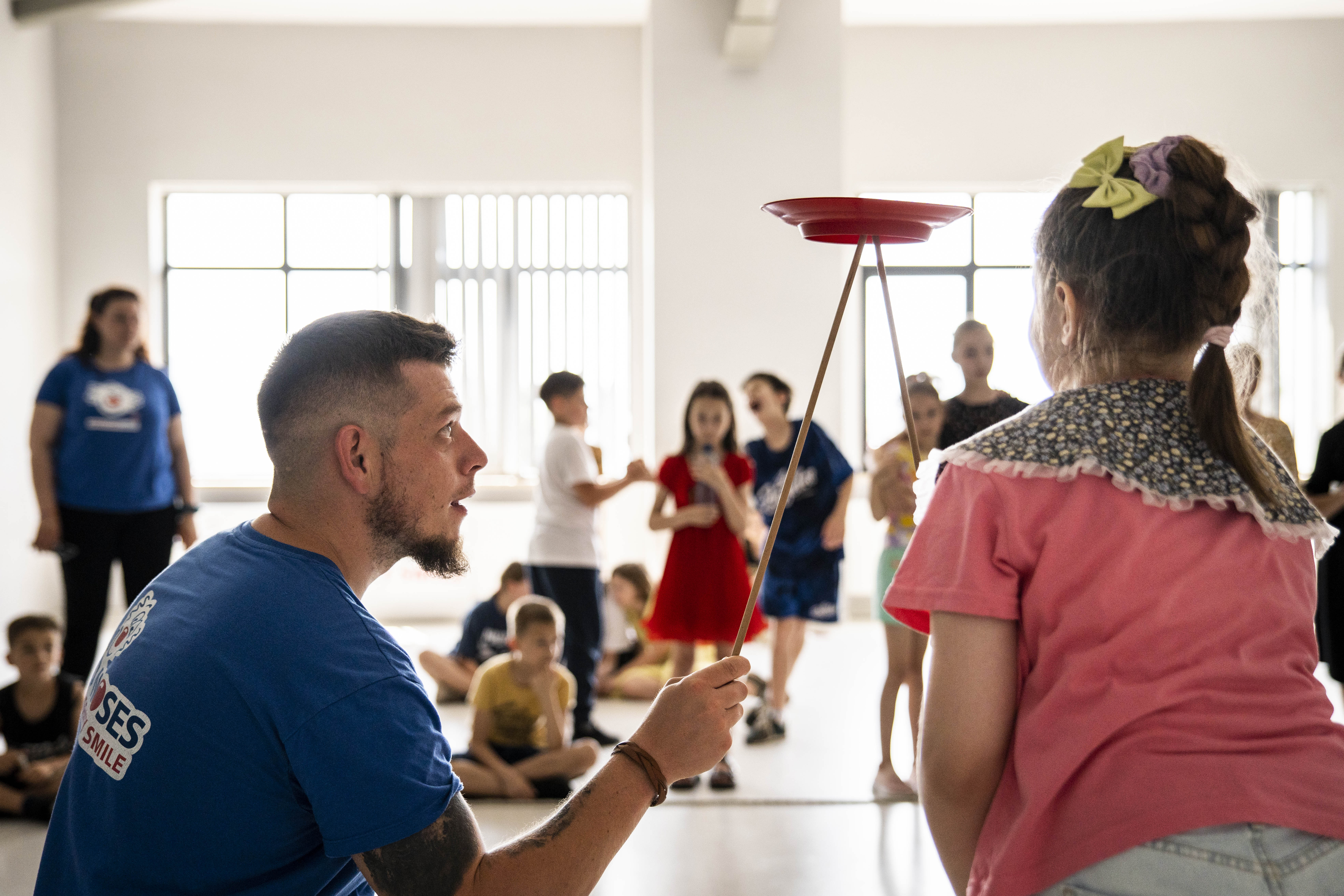
Circus smile workshops
A workshop for minors where clowns teach skills such as juggling, acrobatics, magic, and more. By the end of the workshop, the children perform a show for their relatives, caregivers, and friends.
Working with the clowns, the children learn different circus skills, such as juggling, acrobatics, magic tricks, dancing and much more. By working with small groups, clowns can create special connections with each of the children participating in the workshop, and in return, the children shift their focus from a difficult situation to learning something new.
Their creativity and problem-solving skills are increased, and the children feel seen, included, and empowered.
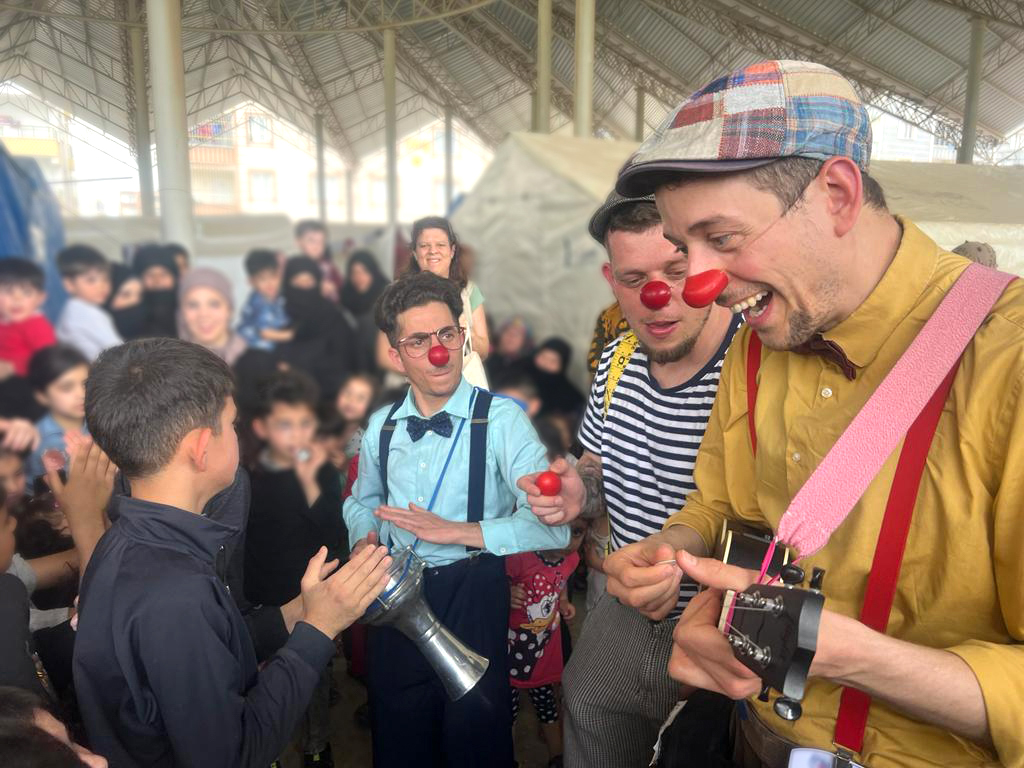
Musical parades
A team of clowns parade through the field playing music, inviting people to join them along the way. Every parade looks different according to the situation. Parades can be very short, with the sole intention of collecting people for a clown show. Alternatively, they can cover a long distance with small performances taking place in between.
They can also be an opportunity to visit people and create intimate and personalised interactions with them. The music, laughter, and voices of everyone singing along spread happiness to every corner.
Who we reach

RED NOSES clown artists encourage children to become creative partners in their play experience by engaging them in artistic interaction.
In this way, children can reconnect with positive emotions and their environment is transformed into a more supportive place where their feelings are respected, and potentially traumatic situations can be reduced. By participating in enjoyable and accessible activities, children and youth living in crisis situations learn new strategies to cope with adversities.
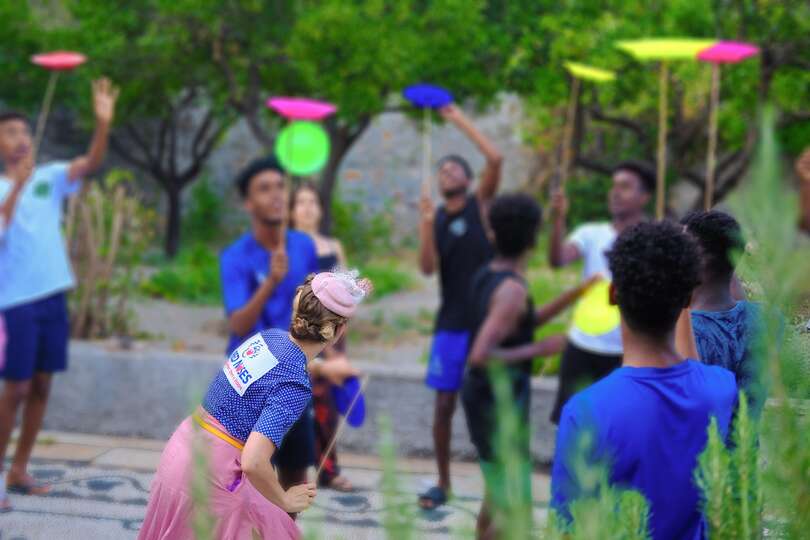
UAMSs are defined by the UNHCR as children under 18 years of age who are separated from both parents or from their previous legal or primary caregiver.
Being in a constant process of resettlement, having language barriers and a lack of understanding of the asylum processes makes them a particularly vulnerable subgroup of refugees. They, therefore, require specific support and care.
The skills and knowledge of our clowns are directed to engage UAMs in circus skill activities to help them develop abilities such as persistence and self-confidence and experience a feeling of achievement and control over their situation.

Another vulnerable subgroup that Emergency Smile teams work with is children with disabilities living in crisis settings.
A further focus of Emergency Smile missions is to make sure that the artistic interventions are adapted to accommodate the diverse needs of all the different groups the team encounters.
Emergency Smile teams have previously had the privilege to work with children with disabilities on different missions, providing a safe space for them to enjoy artistic activities in a way adapted to their specific needs.

Humour has the potential to create powerful emotional connections between people and enhance social interactions. It also plays a vital role in reducing stress and anxiety, encouraging a more harmonious working environment.
The psychological burden of working with very vulnerable groups has a strong impact on the mental health of aid workers.
By offering tailor-made workshops and sharing knowledge on the healing benefits of humour and its applications, professionals in the field can find new ways of connecting with participants and use the new tools to improve their own psychosocial well-being and resilience in the face of their demanding work environments.

Over the years, the Emergency Smile programme has been found to have a positive impact on people regardless of their age.
Community building and empowerment are therefore further beneficial outcomes of the Emergency Smile programme.
Emergency Smile missions provide a platform for empowerment processes across key multipliers of the community as well as a space for the community to celebrate being together.

